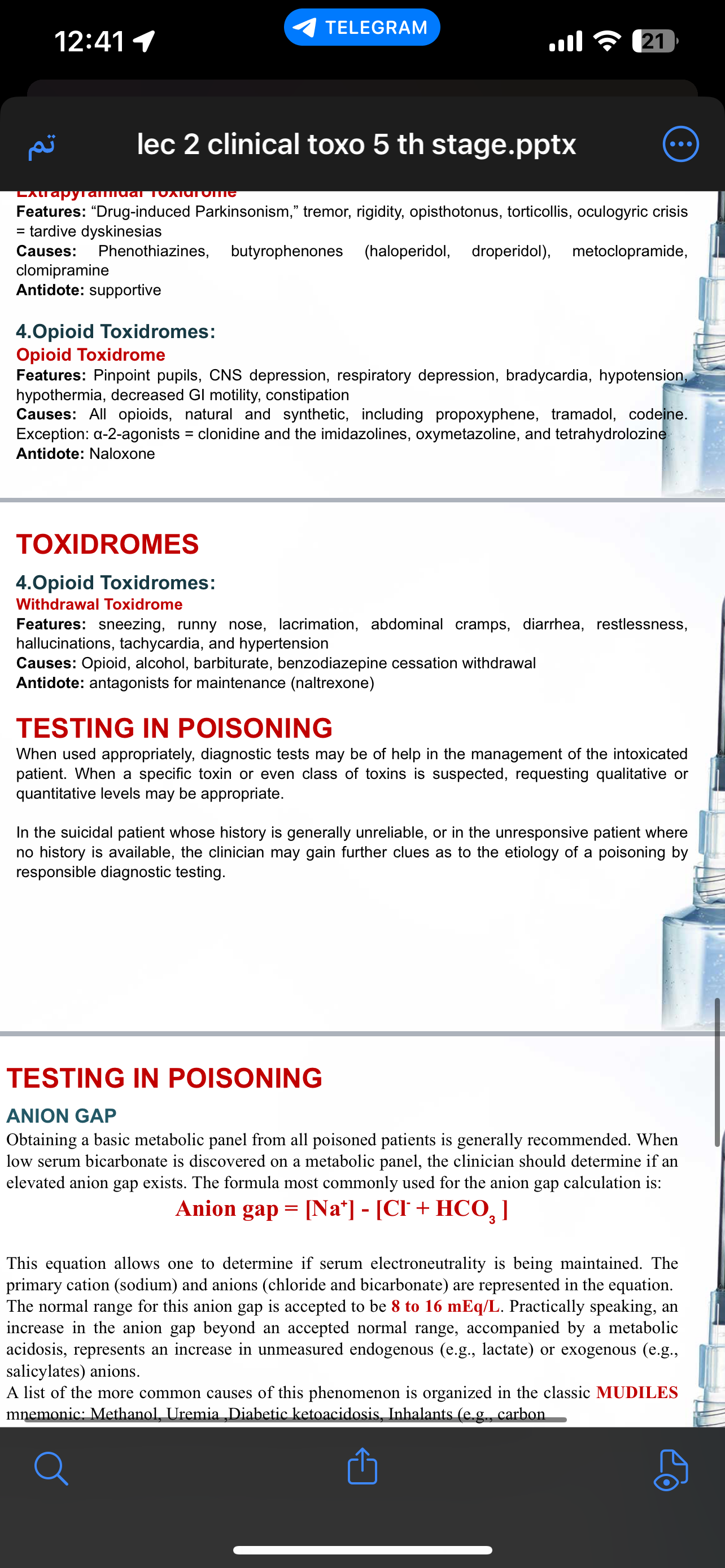What are the features, causes, and antidotes for the different types of opioid toxidromes and how is testing for poisoning conducted?

Understand the Problem
The question seems to focus on toxicology, specifically the identification of various toxidromes related to opioids and testing in poisoning. It discusses symptoms, causes, and antidotes associated with opioid poisonings and methodology for testing when intoxication is suspected.
Answer
Opioid toxidrome features pinpoint pupils, depression; antidote Naloxone.
Opioid toxidrome features include pinpoint pupils, CNS and respiratory depression, bradycardia, and constipation; caused by opioids. Antidote: Naloxone. Test: Anion gap calculation for poisoning detection.
Answer for screen readers
Opioid toxidrome features include pinpoint pupils, CNS and respiratory depression, bradycardia, and constipation; caused by opioids. Antidote: Naloxone. Test: Anion gap calculation for poisoning detection.
More Information
Opioid toxidrome is commonly identified by respiratory and central nervous system depression and requires prompt administration of Naloxone.
Sources
- Toxic Syndromes/Toxidromes - CHEMM - chemm.hhs.gov
- Antidotes for childhood toxidromes - PMC - pmc.ncbi.nlm.nih.gov
- Clinical Practice Guidelines : Toxidromes poisoning - rch.org.au
AI-generated content may contain errors. Please verify critical information